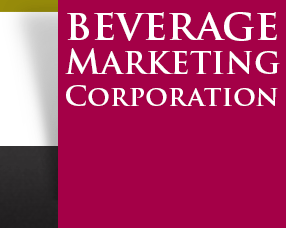 Database with Market Forecasts
Database with Market Forecasts
For more information or to schedule a demonstration contact:
Andrew Standardi
General Manager
Tel: 740-314-8380 ext. 252
Learn About DrinkTell™
DrinkTell™ covers more than 30 categories and 60 sub-categories including:
Non-Alcohol Beverages
- Carbonated Soft Drinks
- Bottled Water
- 100% Fruit Juices
- Fruit Drinks
- Sports Drinks
- Energy Drinks
- Coffee
- RTD Coffee
- Tea
- RTD Tea
- Milk
- Dairy Alternatives
- Flavored Milk
- Vegetable Juice
- Kombucha Teas
- Coconut Water
- Liquid Water Enhancers
- Probiotic Drinks
- Protein Drinks
- Plant Waters
- Vegetable/Fruit Juice Blends
- Energy Shots
- Enhanced Water
- Flavored Water
- Essence Water
- Sparkling Water
- Alkaline Water
Alcohol Beverages
- Alcohol Beverages
- Beer
- Flavored Malt Beverages
- Craft Beer
- Wine
- Spirits
- Cider
And many more...
The industry's one-stop destination for all things beverage
This powerful, customizable, easy to query database facilitates decision-making across the organization:
- Enhance sales and marketing focus
- Zero in on growth segments
- Identify portfolio gaps and market opportunities
- Generate cross-category trend reports in just a few clicks
- Align management objectives around market-driven metrics
Select Features:
Volume and Sales Dollars
- Query annual and quarterly data and 5 year projections for more than 30 categories and 60 sub-categories.
- Track companies and brands.
- Analyze regional data, flavor trends, diet vs. regular, sales channel break-outs, etc.
Advertising Expenditures
- Compare category, company and brand expenditures across 18 media types including internet advertising
U.S. Consumer Insights
- Access brand equity relationship assessment data
- Get insight on Gen Z's beverage consumption patterns and opinions
- Explore category and brand demographic profiles
U.S. Packaging Data
- Explore annual and quarterly packaging units by beverage category, packaging material and size
- Track pack weight and resin consumption trends
- Access co-packer capabilities database and more

Continues To Evolve,
With Enhanced Granularity And
New Features Added Regularly.
Global Beverage Data
- Query volume and per capita consumption for 9 beverage categories across up to 190 countries
Beverage Company Database
- Search U.S. and Canadian companies
- Track bottling and distribution networks
- Study local market distribution and brand competitive situation by product type, brand, location, company size, etc. Optional
Financial Analysis
- Access Wall Street analyst reports, key government and economic data
Market Reports
- Explore the numbers and what they really mean.
- Tap into BMC's insightful analysis of key trends, companies, brands and market drivers
- Access BMC Market Reports from your DrinkTell portal. Optional
More
- Industry presentations
- Analysis of private beverage companies
- LRB caloric trend data
- Leading brand sweetener profiles
- New product introductions
- Beverage imports
Built on Beverage Marketing Corporation's 45 years tracking, analyzing and advising the beverage industry, DrinkTell™ allows you to generate cross-category trend reports in just a few clicks from your desktop, laptop, tablet or smartphone. From annual and quarterly category and sub-category data and five year projections, to company and brand trends, consumer brand equity data, millennial and Gen Z preferences, advertising and demographic data, analyst reports and much more, DrinkTell™ is your one stop portal to all things beverage.
Now available: Customized modular access for greater flexibility!
